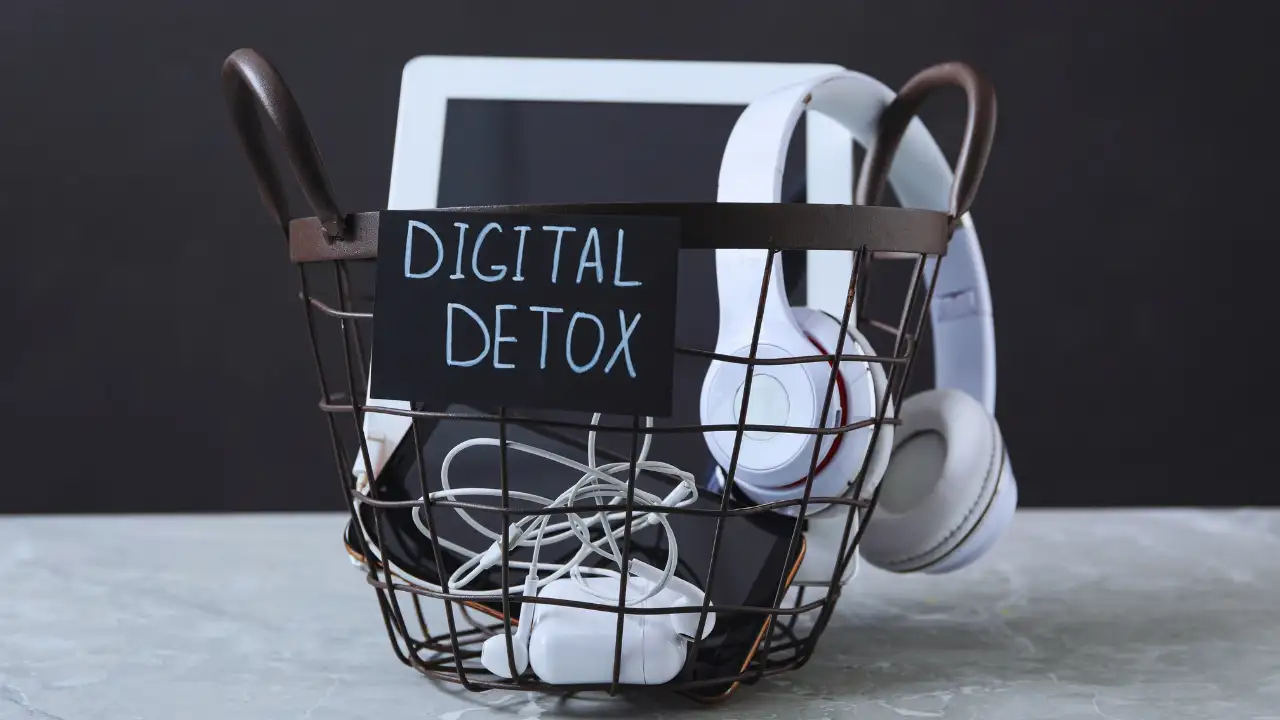Imagine if your brain had a battery icon hovering above it. Now imagine that it’s constantly at 4%. That’s modern life: buzzing, blinking, endlessly connected—and mentally exhausted.
In today’s hyperconnected world, where every moment is punctuated by notifications, emails, and screen taps, our minds rarely find stillness. Technology has undoubtedly bridged distances and streamlined our lives—but at a cost. The cost is often our attention span, our sleep, our mental clarity, and, more quietly, our emotional balance.
The increasing dependency on digital devices—particularly smartphones and social media—has led to a growing wave of burnout, anxiety, and emotional fatigue.
According to Dr Tonmoy Sharma, psychiatrist at Merlin Health, the antidote is deceptively simple: a digital detox. “As a mental health professional,” he explains, “I have seen firsthand how this relentless digital exposure quietly erodes mental well-being.”
What Is a Digital Detox?
A digital detox means deliberately stepping away from screens—phones, laptops, social media, even television—for a certain period. It’s not about renouncing technology altogether. As Dr Sharma puts it, “It’s about reclaiming time for the self, time to reconnect with our environment, our relationships, and our own thoughts without interruption.”
It is a pause—and in today’s nonstop digital rhythm, pauses are essential.
Why This Pause Matters
“Research shows that the typical individual checks their phone more than 90 times per day,” says Dr Sharma. “That figure is not merely a statistic—it's a symptom.” Too much screen time is associated with sleep problems, reduced concentration, and higher levels of stress.
Perhaps more disturbingly, Dr Sharma points to the curated nature of social media as a trigger for harmful self-comparison. “It promotes a poisonous cycle of comparison, leading to feelings of inadequacy and low self-esteem—especially in youth.”
Mental health professionals, including Dr Sharma, are seeing more clients with what is now termed digital fatigue—a kind of mental fog caused not by physical exhaustion, but by endless online interaction. A digital detox, he argues, “offers a necessary reset, helping the brain declutter and the emotions recalibrate.”
Mental Clarity Begins With Disconnection
“When we unplug, our minds begin to breathe,” says Dr Sharma. The constant stimulation ceases, creating space for introspection, creativity, and calm.
Clients often describe feeling "lighter" and more focused after just a short break from screens. Mundane activities—reading a physical book, taking a walk, journaling—transform into nourishing rituals. “They return us to ourselves,” Dr Sharma says. “In these quiet moments, the mind recovers, and what follows is not just clarity but also purpose.”
Emotional Reset in a World of Overload
Digital overload isn’t just mental, it’s deeply emotional. “Constant exposure to distressing news cycles, social media pressure, or an unending string of work messages leads to emotional numbness and burnout,” warns Dr Sharma.
By stepping back, individuals often rediscover their emotional range. “Conversations become more meaningful. Family dinners become moments of connection rather than screen-lit silence. And most importantly, we become more present—with others and with ourselves.”
Getting Started: Detoxing in Real Life
You don’t need to vanish into the wilderness to reclaim your peace. Dr Sharma suggests starting small:
- Create screen-free zones—like at meals or before bedtime
- Limit notifications—especially from non-essential apps
- Replace screen time with real-life hobbies—gardening, art, music
- Schedule “digital-free days”—even once a week helps
- Use tech to limit tech—screen time monitoring apps can increase awareness
“Detoxing isn’t about restriction,” says Dr Sharma. “It’s about liberation—from overstimulation, from performative scrolling, and from compulsive checking.”
The Long-Term Gains
Like all good habits, the benefits of digital detoxing build over time:
- Better sleep quality
- Lower anxiety and restlessness
- Stronger personal relationships
- Increased concentration and creativity
- A more mindful and fulfilling experience of daily life
A Conscious Choice
“Technology is not the enemy,” says Dr Sharma. “But our relationship with it must be intentional, not automatic.”
A digital detox is not an act of fear—it’s an act of freedom. Freedom to live on your terms, not dictated by algorithms or notification pings.
“We must choose to make space for what truly matters: peace of mind, emotional connection, and a sense of balance,” Dr Sharma concludes. “In a world that values constant connectivity, taking a break is an act of courage—and one your mind and heart will thank you for.”
Get Latest News Live on Times Now along with Breaking News and Top Headlines from Health and around the world.
